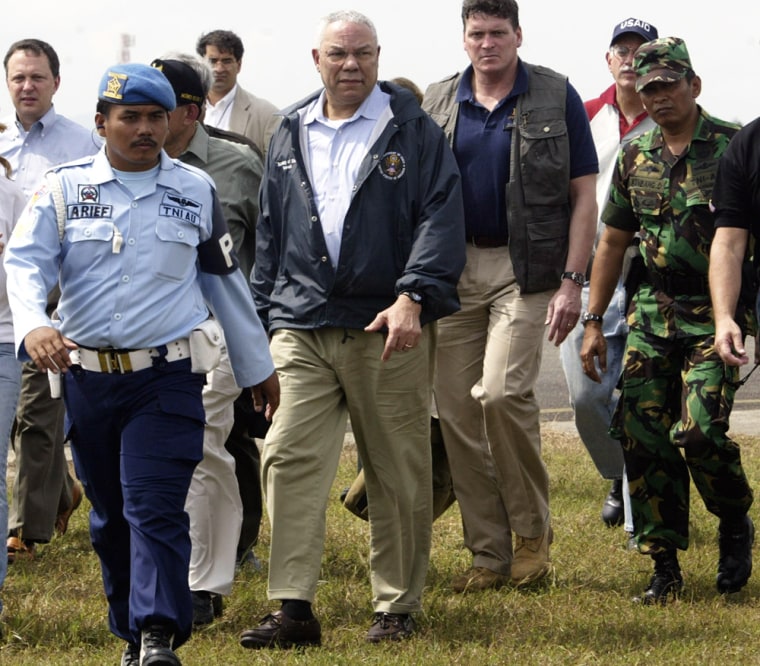Fourth in the lineup of nations bankrolling tsunami relief efforts, the United States will probably increase its pledge once “the true dimension of this tragedy” is clear, Secretary of State Colin Powell said Thursday.
Powell also said the group of countries, including the United States, that led initial relief efforts will now turn its work over to the United Nations.
President Bush had set up the initial relief organization outside the world body’s large bureaucracy. The Bush administration is sometimes suspicious of the U.N. bureaucracy, but had insisted that the separate group of nations were not at odds with the world body.
“The core group helped to catalyze the international response,” Powell told nations assembled for a conference to coordinate relief efforts across the 12-nation region that saw devastation and huge loss of life from the Dec. 26 tsunami disaster.
“Now having served its purpose, it will fold itself into the broader coordination efforts of the United Nations as the entire international community works to support the nations who have suffered this tragedy,” Powell said.
The United States has pledged $350 million in direct financial aid to the relief effort, and is spending uncounted millions more to run a large military supply and relief mission using U.S. ships, planes and helicopters.
“We know full well that as the true dimension of this tragedy continues to emerge it may be necessary for us to make a larger contribution,” Powell said at the conference. He gave no specifics and no firmer timeline.
Early criticism
The United States took early criticism for being slow to commit cash and political muscle to the relief effort, but Powell and other U.S. officials say Washington upped its commitment appropriately, as the scope of the damage became clearer.
Powell has nearly finished a three-nation tour of hard-hit countries that began in Thailand and included a visit Wednesday to the devastated coastal regions of Sumatra, in Indonesia. Tens of thousands died there, and whole villages were inundated. He will visit Sri Lanka on Friday.
“On our return to Washington, we will report directly to President Bush regarding the horrors people in this region have endured,” Powell said.
The United States was the first to raise the stakes dramatically in the aid race by pledging $350 million on Friday; it is now behind Australia, Germany and Japan.
Global pledges now near $4 billion, but Powell has repeatedly said that money is not the immediate problem. Making the relief effort run smoothly in the short run is a paramount concern, along with planning for long-term rebuilding and economic recovery, Powell said at the start of his Asian tour.
in the region, and an unknown number are missing. Although the State Department has a list of 2,900 or more Americans who are unaccounted for, officials do not believe that anywhere near that number have died. Many on the list are simply out of touch with family or may have never been in the affected region, officials said.
